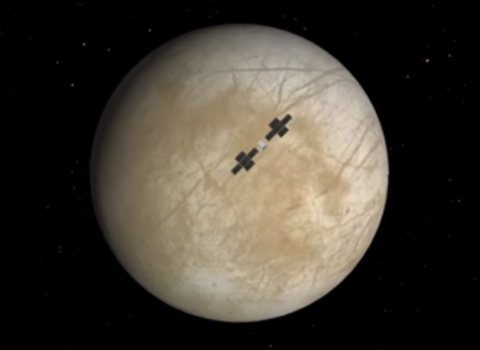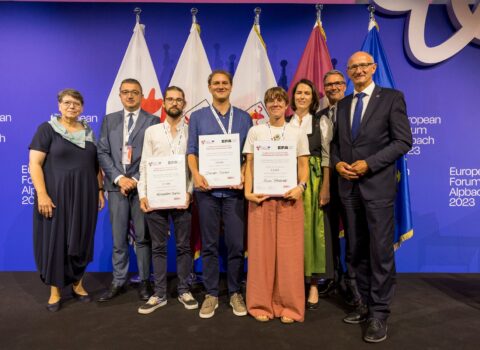
Complexity Translation Exercises: a glossary for FBK’s research worlds
Scientific excellence feeds on knowledge challenges that find application in our daily lives: from the smartphones we use to the universe we explore. The FBK dictionary series offers close encounters with the disciplinary fields that shape Fondazione Bruno Kessler, one word at a time.
FBK is like an ever-expanding galaxy of subject specializations. Each conceptual system addresses unsolved problems or asks new questions to refine methods and test innovative solutions. This applies to scientific-technological research as well as to humanities and social sciences.
Such a wide observatory sometimes offers the advantage of being able to draw on interpretive schemes from different sources. This possibility of having the vessels of the so-called hard science fields communicate with humanistic approaches and backgrounds is uncommon, and represents, perhaps now more than ever, a great opportunity in the time of rapid changes dictated by the ever-expanding use of artificial intelligence.
An organization such as ours, which is polycentric, encompassing within it a dozen horizons of meaning, is a veritable laboratory of interdisciplinarity and cultural diversity, where every day more than 450 researchers from about 30 countries exchange views with each other, weave relationships with other scholars from all over the world, make hypotheses, discuss their theories and develop novel paths.
In an attempt to represent this complexity, we asked our youngest author, Lorenzo Perin, to shed light on these directions of investigation, identifying, for each FBK research center, a word or expression that would act as a prism to shed light on their respective worlds of knowledge, both theoretical and applied.
The result was a kind of glossary: the “FBK dictionary” series encapsulates our research stories in the mirror. The journey starts from history, the teacher of life. In particular, the first stage is dedicated to environmental history, a field of study that explores the relationship between humanity and nature over time and addresses topics such as the Anthropocene and the Great Acceleration, two of the most urgently needed ones.
In the following steps, again in a manner consistent with the big questions of our times, we will take a look at topics such as religious fundamentalism (looking at its origins, sociological implications and evolution), misinformation that we counter by applying artificial intelligence techniques, Cybersecurity, public policy evaluation, industrial automation processes, the role of sustainable energies in mitigating the effects of climate change, the centrality of health, from prevention to digital experimentation, sensor technology with applications in every productive sector, and much more.
Last but not least, we have chosen to entrust this exploration of FBK knowledge to the perspective of a future-oriented generation. The result, intentionally, will not be an exhaustive mosaic of the research and innovation expressed by our community, but we hope that it will help intercept many curiosities and sort out the meaning and value of some key words that weave together the current challenges of social change.



